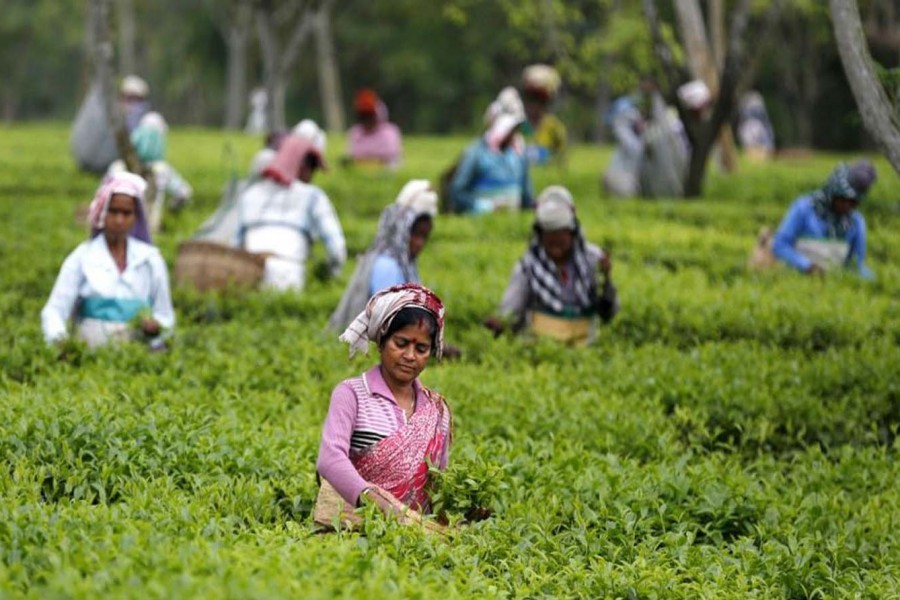Tea Plantation Workers (TPWs) popularly known as tea garden workers estimated at 130,000 of 167 tea estates across the country have started an indefinite strike. Theirs is a humble demand for raising their daily wage from a pittance of Tk120 to Tk300. In May 2020, they also started a movement for a raise in their daily wage and had to be satisfied with an addition of Tk 18 to their earlier gross of Tk 102. According to the legal provision, their wage has to be reviewed every two years and since the earlier raise was retrospective from 2019, another review in favour of an wage increase was due in 2021. Quite naturally, the 2020 nominal increase did not go well with the tea workers. When a farm worker in the country earns a daily wage of Tk 300-500, it is quite clear that this marginalised community is deprived of even the minimum dues for their hard labour.
Here is a community that still bears the legacy of slavery their ancestors were subjected to by British tea planters who started commercial tea plantation in India in 1939. The workers were recruited from different parts of India with promise of a better life but actually turned into slaves and forced to lose communication with their ancestral homes and even their own languages. Rootless as they are, they did not become citizens of this land until the independence of Bangladesh. But their citizenship is still a mockery because the lands on which mostly their mud-walled thatched-roofed shanties stand are not their own property. Unless one member of a family manages work at a tea garden, their right to live in the living quarters ceases to be still now. The system has been so arranged that they are more like bonded labourers than free workers. Their children do not receive the education because there is no school except the few run by charities. So, the young generations also cannot come out of the poverty trap.
Housing and medical treatment are free (on paper only) and the ration they are entitled to reportedly is only 5.0 kilograms of rice or wheat. So, free living accommodation is conditional because they do not and cannot own those and so far as medicare is concerned, doctors and medicines are hardly readily available. A study carried out a couple years ago found that 80 per cent of mothers gave birth at home without proper medical facilities and sanitation. Evidently, the deprivation starts right from a child's birth in the tea garden.
Since 2016, the tea industry has been making increasing profit but workers do not enjoy the mandatory 5.0 per cent profit as stipulated in the government regulations. Exploitation is extensive but the tea garden workers receive hardly any attention from either the rights groups, the media and the government. About half a million people are dependent on the tea workers' labour and such mindless indifference to this community stands in the way of their social integration. But integrated they must be in the interest of the nation. Leaving any community perpetually backward is an affront to civilisation. Bangladesh cannot and should not be a party to it.


